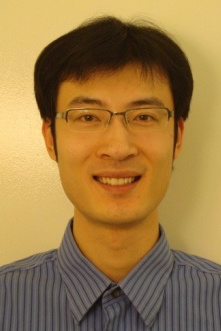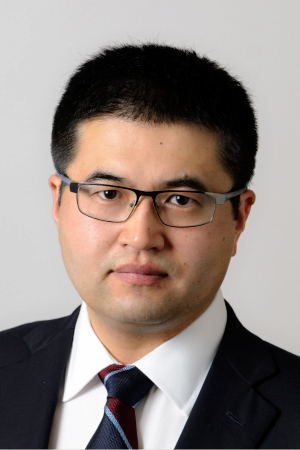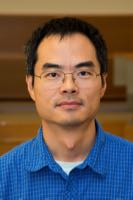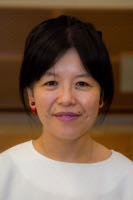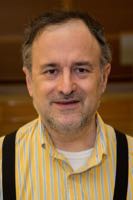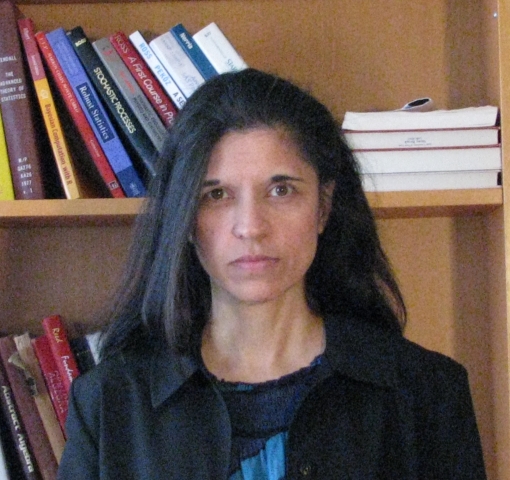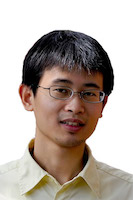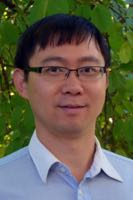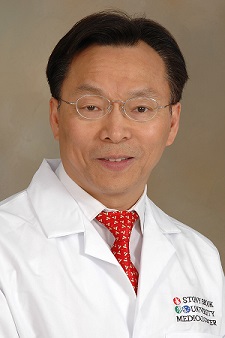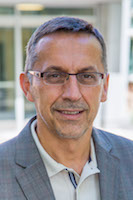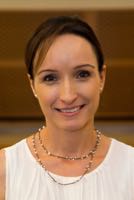Machine Learning and ECE: Made for Each Other
Big data, machine learning (ML) and artificial intelligence (AI) applications are revolutionizing the models, methods and practices of electrical and computer engineering. At the same time, electrical and computer engineering research advances in hardware and software are crucial for all those applications to become a reality. New technology domains, such as smart grids, smartphone platforms, autonomous vehicles and drones, energy efficient systems, wearables and Internet of Things (IoT) tools will unfold; embedded with electrical and computer engineering systems in real world or industry practice.
| Prof. Yue Zhao’s research lies in the intersection between machine learning and sustainable energy systems. His work integrates learning methods with physical models and efficient heuristics for solving challenging computation problems in power system operations. His work also exploits massive real-world data for developing data-driven intelligence in demand response, net load prediction, asset management, and fault prediction. He has led projects on machine learning in power systems sponsored by NSF, ONR, DOE, and NYSERDA. |
Prof. Yue Zhao |
| Prof. Peng Zhang’s Power Lab aims to develop an AI-enabled, provably resilient power grid (AI-Grid). Funded by a recent NSF award, he and his students are building a programmable AI-Grid platform that integrates deep learning, reachability analysis, formal control, and cybersecurity technologies to enable scalable, self-protecting, autonomic and ultra-resilient power systems. In addition, supported by a DOE project and a SUNY QIST seed grant, they are devising quantum AI methods for ultra-scalable power system modeling, analytics, and resilient control. |
Prof. Peng Zhang |
| Prof. Fan Ye uses machine learning algorithms in signal processing and data analysis to develop smart edge devices. They measure the activities and physiological data of people to find their health status, detecting emergencies and predicting imminent disease onset. The project is supported by NSF. |
Prof. Fan Ye |
| Big data analysis and machine learning is one focus area of Prof. Xin Wang’s WINS group. Extensive research on sparse data processing has been conducted. Their work on machine learning aims to advance the fundamental algorithms, with results on time series processing, video/image analysis, natural language understanding, and graph signal processing. Their algorithms have been applied to a broad range of applications, including the environment, networks, smart grid, transportation, health, and security. The work is sponsored by NSF. |
Prof. Xin Wang |
| Prof. Wendy Tang’s machine learning research includes using machine learning techniques for thermal image classification and detection. The project is in collaboration with Consolidated Edison, Inc. Her group is also investigating the deployment of spiking neural networks which are biologically inspired for various applications. Last but not least, she is in collaboration with other colleagues to investigate the use of machine learning techniques for students' success. |
Prof. Wendy Tang |
| Professor Thomas Robertazzi has a research interest in machine learning performance evaluation. |
Prof. Thomas Robertazzi |
| Prof. Peter Milder studies efficient hardware architectures for accelerating machine learning, seeking to build digital computer systems that can solve ML problems faster while using less energy. His recent work studies transformer networks, which are used in natural language processing (a field that aims to understand and process human languages). His group has also worked heavily with convolutional neural networks, which are often used in visual applications. This work has been supported by NSF. |
Prof. Peter Milder |
| Dr. Vibha Mane has proposed new courses for the Engineering Machine Learning Systems Certificate program. She has been teaching graduate courses in theoretical and practical machine learning, where she directs student projects to develop specific applications, incorporating a research component. She has also introduced an introductory machine learning course, for intuitive understanding of the concepts for non-majors. Dr. Mane’s research includes analysis, validity, and data imputation problems for medical survey instruments, and network topology problems with application in brain signals. |
Dr. Vibha Mane |
| Prof. Ji Liu’s group research in machine learning aims to establish theoretical foundations for centralized reinforcement learning for nonstandard problems, in which costs, constraints, and risk must be taken into account, and distributed reinforcement learning algorithm design and applications over large-scale dynamic networks, where no single agent can solve the problem alone or by taking the lead. |
Prof. Ji Liu |
| Prof. Shan Lin’s group develops a variety of machine learning techniques for cyber-physical systems. The group has developed LSTM models for time series forecasting for human mobility in smart buildings and smart cities. They have also developed deep learning based sensing models for activity and gesture recognition. Shan Lin’s group is developing safe imitation learning methods to build controllers for medical devices. His research has been supported by NSF and DOE. |
Prof. Shan Lin |
| Prof. Jerome Liang’s Laboratory for Imaging Research and Informatics has been exploring a research interest, “artificial intelligence (AI)-enabled machine learning (ML) to achieve the clinical task of computer-aided diagnosis (CADx) of early cancers.” The AI is reflected by modeling of heterogeneity and dynamical properties of malignant lesion. The CADx is the task that human experts want to achieve. The human experts embed the AI in machine learning to achieve the task in the most efficient way. Prof. Liang’s work is supported by NIH/NCI. |
Prof. Jerome Liang |
| Prof. Alex Doboli's group has been working on automating creativity and open-problem solving in electronic circuit and system design. These topics are important as automatically synthesized solutions have low or no creativity, and are often hard to understand and assess by human designers. Novel Machine Learning algorithms and knowledge representations have been developed to express the degree of innovation, circuit similarity, design knowledge clustering, organization and abstraction, design causality mining and new circuit synthesis with characteristics beyond the features of current circuits. Work also studied the evolution of circuit design communities, and how successful design teams differ from the rest. This research was funded by NSF. |
Prof. Alex Doboli |
| Prof. Petar Djuric’s group investigates machine learning methods based on nonparametric approaches within the Bayesian framework. Models and methods of interest are (a) Gaussian processes and deep Gaussian processes, (b) Dirichlet process mixtures, (c) Yule Simon processes, and (d) particle filtering. They use these approaches in several applications to medicine including fetal heart rate monitoring in obstetrics and in studying brain signals to answer questions related to consciousness. This research is funded by NSF and NIH. |
Prof. Petar Djuric |
| Bayesian inference is at the core of Prof. Mónica Bugallo’s research portfolio, and is an extremely powerful set of tools for modeling, estimation and forecasting of parameters defining complex systems, which are at the center of big data, ML and AI applications. Bayesian models and methods map our understanding of a problem (usually characterized by many unknowns) and process observed data (usually large data sets) into measures related to a particular fact in probabilistic (belief) terms. Therefore, Monica Bugallo’s research agenda on theory and practice of such forceful tools in challenging scenarios can significantly contribute to important ML and AI applications. This research has been funded by NSF. |
Prof. Mónica Bugallo |
| Kevin Brown says using traditional control system methods for automation and control, along with physics-based first-principles models, has given us unprecedented control over the particles beams used to fulfill the science missions at Brookhaven National Laboratory’s (BNL) particle accelerators. Kevin Brown and collaborators are using AI/ML tools for advanced prognostics, optimization, and improved automation. They are developing tools to create computationally-efficient, physics-informed surrogate models. The aim is to develop domain-agnostic, AI-based modeling and controls. Kevin Brown’s research is supported through Brookhaven Science Associates from DOE. |
Kevin Brown |

